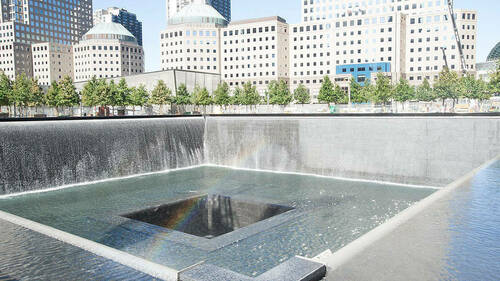
To commemorate a milestone anniversary, the Keough School of Global Affairs will host “The Twentieth Anniversary of September 11: Changing the Climate of Conflict,” three policy discussions about 9/11. This series is presented by the Keough School of Global Affairs and its Ansari Institute, and is co-sponsored by the Keough School’s Kellogg Institute for International Studies, Klau Center for Civil and Human Rights, Kroc Institute for International Peace Studies, Liu Institute for Asia and Asian Studies and Nanovic Institute for European Studies.
The Twentieth Anniversary of September 11: Cause and Effect
1030 Jenkins Nanovic Halls, University of Notre Dame, or Zoom Webinar
12:30-1:30 p.m., Sept. 1
First in a series of three conversations.
In a famous presidential primary debate in 2008, libertarian candidate Ron Paul argued that the United States was attacked on Sept. 11 because of its military meddling in Middle Eastern affairs. Former New York City mayor Rudy Giuliani called that one of the most absurd explanations he had ever heard, and demanded an immediate apology. But the question remains.
Was Sept. 11 an expression of religious fanaticism or blowback to U.S. foreign policy? Is this an either/or question or a both/and proposition? Answers to these critical questions have varied in the scholarly conversation and the public arena.
RSVP required.
Featuring remarks by Andrew Bacevich, president of the Quincy Institute and author of "After the Apocalypse: America’s Role in a World Transformed," and responses from invited guests, faculty members and students.
The Twentieth Anniversary of September 11: Pax Americana?
1030 Jenkins Nanovic Halls, University of Notre Dame, or Zoom Webinar
12:30-1:30 p.m., Oct. 6
Second in a series of three conversations
“The United States has been the world’s principal architect [of security] and its general contractor,” observed veteran diplomat Richard Haass. But has the use of military force by the United States in Afghanistan, Iraq and other countries made the world safer and more democratic today than it was on Sept. 12, 2001?
With the erosion of civil liberties, rise of authoritarianism and heightened xenophobia across the world in the last two decades, have terrorists come closer to achieving their aims? In what ways are current world crises — racial injustice, mass migration, inequality and inadequate responses to the global pandemic — connected to the conditions of conflict that worsened after Sept. 11?
RSVP required.
Featuring remarks by Professor Elizabeth Hurd, the Crown Chair in Middle East Studies at Northwestern University and author of "Beyond Religious Freedom: The New Global Politics of Religion," and responses from invited guests, faculty members and students.
The Twentieth Anniversary of September 11: Chaos or Community?
1030 Jenkins Nanovic Halls, University of Notre Dame, or Zoom Webinar
12:30-1:30 p.m., Nov. 3
Third in a series of three conversations
The question animating this closing discussion comes from the title of Martin Luther King Jr.’s final book, "Where Do We Go from Here: Chaos or Community?"
Can peoples and nations find ways to forge a more cooperative global community? Or will the world descend into further chaos? Can we recommend policies, drawing on the most compelling narratives and perspectives presented in the first two panels, to advance King’s dream of greater equality and a just community for all? Can we optimize security, development and human rights policies that promote the dignity and flourishing of all persons and every community?
RSVP required.
Featuring remarks by Stephen Walt, the Robert and Renee Belfer Professor of International Affairs at Harvard Kennedy School and author of "The Hell of Good Intentions: America’s Foreign Policy Elite and the Decline of US Primacy," and responses from invited guests, faculty members and students.